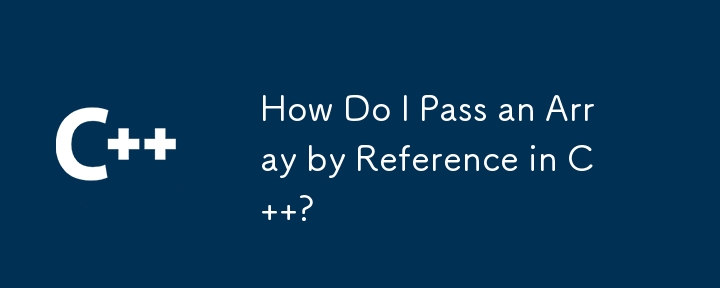Home >Backend Development >C++ >How Do I Pass an Array by Reference in C ?
How Do I Pass an Array by Reference in C ?
- Patricia ArquetteOriginal
- 2024-12-21 07:02:10253browse

Passing an Array by Reference
When passing an array to a function, it's important to consider whether you want to pass the array by value or by reference. Passing by value creates a copy of the array, while passing by reference allows the function to modify the original array.
Passing an Array by Reference Syntax
To pass an array by reference, we use the following syntax:
void foo(int (&myArray)[100]);
In this syntax, myArray is a reference to an array of 100 integers. This means that any changes made to myArray within the foo() function will be reflected in the original array.
Separate Parentheses and Big Brackets
The separate parentheses followed by big brackets (&myArray)[100] serves two purposes:
- The parentheses () indicate that we are passing a reference to an array.
- The big brackets [] specify the size of the array being passed. In this case, it's an array of 100 integers.
Alternative Array Declarations
It's worth noting that the following declarations are all equivalent:
void foo(int * x); void foo(int x[100]); void foo(int x[]);
However, the following declaration is different:
void foo(int (&x)[100]);
This declaration only accepts arrays of 100 integers, and we can safely use sizeof on x.
Invalid Declaration
The following declaration is invalid:
void foo(int & x[100]); // error
This is parsed as an "array of references," which is not a valid data type in C .
The above is the detailed content of How Do I Pass an Array by Reference in C ?. For more information, please follow other related articles on the PHP Chinese website!
Related articles
See more- C++ compilation error: A header file is referenced multiple times, how to solve it?
- C++ compilation error: wrong function parameters, how to fix it?
- C++ error: The constructor must be declared in the public area, how to deal with it?
- Process management and thread synchronization in C++
- How to deal with data splitting problems in C++ development

